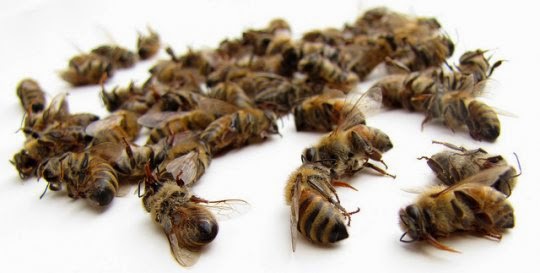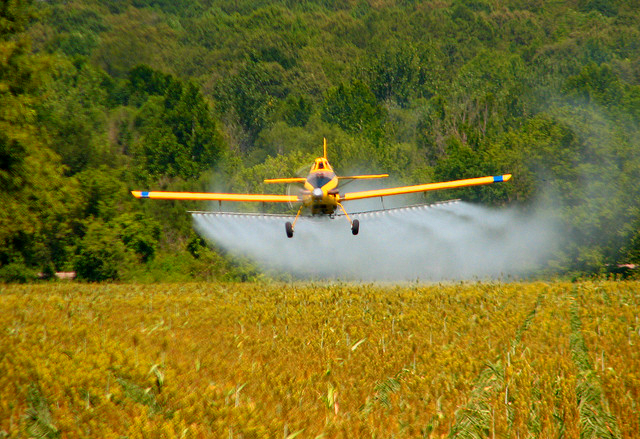Honey Bee Die Off Could Deeply Affect Food Supply

RALEIGH, N.C. – The existence of the honey bee is in danger and that could have a huge impact on agriculture and our food supply.Much of what we eat depends on being pollinated by bees.
In North Carolina, bees are dying off at an alarming rate and researchers in the state are scrambling to figure out why.
Bee keeper David Massengill of Four Oaks is one of those who have been frustrated by the sudden loss of his bees.
“Last year, I started losing hives and I could not figure out why it was,” he said.
In Massengill’s case, it was due to pesticide contamination in a cucumber patch where his bee hives were placed for pollination services.
“I lost a third of my bees due to the cucumbers,” he said. “Then, I found out what the problem was.”
Massengill’s loss was due to a type of nicotine-based pesticide known generically as neonicotinoids.
Seeds are coated with that pesticide which eventually is absorbed by the plant and its pollen to protect it from insects. But labels warn the pesticide is highly toxic to bees.
“It gets in their system and they don’t know their way back,” explained Massengill. “They lose their memory and everything so basically they die in the field.”
With no worker bees or drones returning to the hive with pollen, the nurse bees that take care of the young resort to eating the stored honey in the hive to stay alive.
The bees are literally starving to death.
Massengill caught it early, before the whole hive died out.
He happened to be checking in the bees in the cucumber patch and saw the disaster in the making.
“I pulled the hives off and brought them back home and started nursing them back,” he said.
He began adding worker bees from other hives to the distressed one.
“They’ve started coming back slowly,” he said.
For smaller beekeepers like Massengill, keeping an eye on a hive and its health is fairly easy because he only has about 40 of them.
But for larger bee keepers, it becomes problematic.
“These people that have 600, 700 hundred hives? There’s no possible way they can do that time wise,” he explained.
But pesticides are only a small part of what is destroying bee colonies.
“Forty-six point one percent of the hives in North Carolina died off last year,” said professor David Tarpy of North Carolina State University.
Some of that die-off is due to something called colony collapse disorder.
In a colony collapse, all the bees abandon the hive, leaving the brood to die.
In 2006, WNCN spoke with Tarpy about research he was just starting on colony collapse disorder.
Nearly a decade later, he and his team are still at it.
“There have been about 75 or so individual things that have been tested to see if that is the cause of colony collapse disorder, but no one single factor has emerged as the smoking gun,” said Tarpy.
Finding an answer he said is like finding a cure for cancer; its complex.
And, disappearing bees from Colony Collapse Disorder isn’t the only problem.
Beekeepers report queens are dying mysteriously.
“They’re supposed to live two to three years,” explained Tarpy. “Beekeepers are having a hard time having them live for more than one year.”
Tarpy’s researchers are working to figure out why because bees are essential to our food supply
“One out every three bites of food we eat is provided by bees in general,” said Brandon Parker, the Commercial Horticulture agent Johnston County extension service.
Bees pollinate about $200 million dollars’ worth of crops a year in our state; nationally it’s about $20 billion dollars a year.
The bee die off has caught the attention of the White House.
Last May, the president created a task force to develop a national strategy to promote the health of honey bees and other pollinators.
“I’m ecstatic, but I’m also holding my breath because we all know its Congress that holds the purse strings,” said Tarpy. “We have to see if there really going to be this new investment in pollination biology to try and understand these problems for the $20 billion dollars of ecosystem service that pollinators provide every single year to the greater agricultural economy.”
As Massengill said, our lives really depend on it.
“Once we destroy the bees we’ve destroyed ourselves because we aren’t going to have a food supply,” he said.




